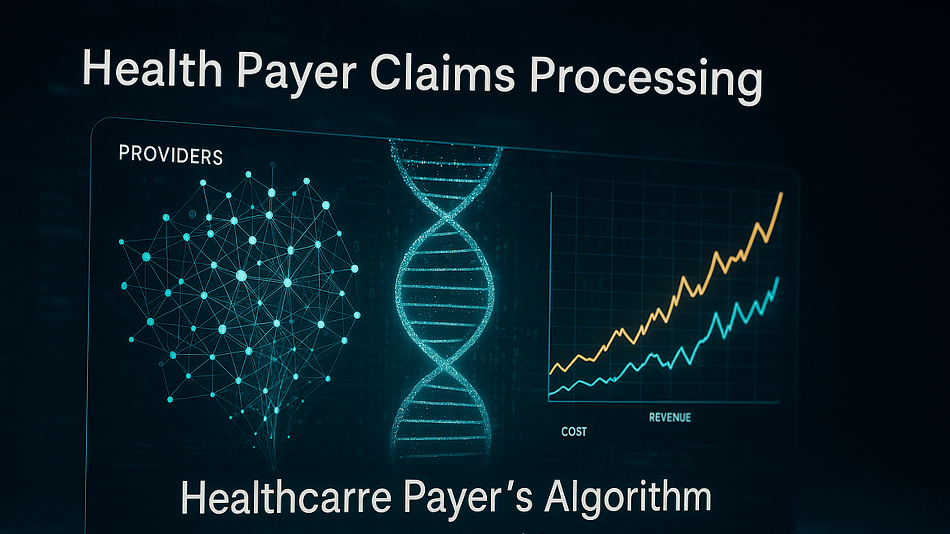🌐 Introduction: The Dawn of Zero-Touch Claims
In the ever-evolving world of healthcare, automation is no longer optional — it’s inevitable. As hospitals and insurance companies face rising claim volumes and shrinking margins, the focus has shifted toward a revolutionary concept known as Zero-Touch Claims.
But what does this term really mean? Simply put, Zero-Touch Claims refer to a process where healthcare claims are created, validated, submitted, and approved automatically — with minimal or no human intervention.
By 2026, this concept won’t just be an innovation; it will be a new industry benchmark, thanks to advancements in artificial intelligence (AI), machine learning (ML), and natural language processing (NLP).
And at the center of this transformation stands Aiclaim, a pioneer in AI-driven claims automation.
🤖 What Are Zero-Touch Claims?
Zero-Touch Claims represent the future of revenue cycle management (RCM) — an intelligent, self-learning system where AI handles the entire claim lifecycle, from pre-authorization to final reimbursement.
Unlike traditional claim workflows that typically rely heavily on manual data entry and verification, today’s AI models, however, go far beyond these limitations. Firstly, they can automatically extract patient and treatment data directly from electronic health records (EHRs). Next, they intelligently match this data with payer rules and up-to-date coding guidelines to ensure complete accuracy. Then, they continuously analyze patterns to detect potential denials even before the claim is submitted. After that, they efficiently submit the claim and can instantly trigger real-time appeals whenever issues or discrepancies arise. Ultimately, AI doesn’t just process claims anymore — instead, it predicts, corrects, and perfects them with every single transaction.

💡 Why AI Is the Core of Zero-Touch Claims
Artificial Intelligence has moved far beyond simple task automation. In healthcare, it now powers end-to-end intelligence that connects data, people, and processes seamlessly.💡 Here’s How AI Makes Zero-Touch Claims Possible
To begin with, Artificial Intelligence transforms the claims process by integrating advanced technologies that work together seamlessly. Each component, in turn, contributes to building a smarter, faster, and fully automated healthcare reimbursement system.
Firstly, through Predictive Analytics, AI models that are trained on millions of historical claim outcomes can now accurately forecast denial probabilities with over 90% precision. As a result, healthcare organizations can proactively correct errors before submission and significantly reduce rejections.
Secondly, by leveraging Natural Language Processing (NLP), systems like Aiclaim can effortlessly interpret unstructured documents—such as clinical notes, prescriptions, and laboratory reports—and then convert them into standardized claim data. Consequently, this ensures consistency, accuracy, and compliance across every submission.
Thirdly, with the power of Machine Learning (ML), AI continuously learns from historical patterns and previous errors. Therefore, it becomes capable of performing smarter claim edits and enabling self-correction in future submissions. In addition, this ongoing learning process helps minimize repetitive mistakes and enhances claim approval rates over time.
Finally, through Generative AI Integration, the technology will evolve even further by 2026. In particular, generative AI will automatically draft appeal letters, predict payer behavior patterns, and even simulate reimbursement outcomes. As a result, manual workloads could be reduced by up to 85%, leading to faster, more accurate, and fully optimized claim cycles.
Ultimately, by combining these intelligent layers—Predictive Analytics, NLP, ML, and Generative AI—Aiclaim’s zero-touch claim automation brings healthcare organizations one step closer to a future of effortless, accurate, and end-to-end claim management.
⚙️ The 2026 Vision: Fully Automated Healthcare Claim Processing
The question is no longer if AI can automate claim processing but how completely it can do it.
By 2026, healthcare organizations will likely experience:
- 90–100% automation in clean claim submissions.
- Real-time adjudication using AI-driven payer APIs.
- Seamless integration between EHRs, CRMs, and billing systems.
- Fraud detection and audit compliance powered by AI.
Platforms like Aiclaim.com are already paving the way by combining AI-based document analysis, fraud detection, and intelligent claim routing — ensuring every claim reaches its destination faster and cleaner.

📉 Current Challenges That AI Will Eliminate by 2026
Healthcare claim management still faces several pain points. However, AI-driven zero-touch models are uniquely positioned to resolve them.
| Challenge | AI-Driven Solution |
|---|---|
| Manual data entry & coding | Automated coding using NLP |
| High denial rates | Predictive denial prevention |
| Lengthy adjudication cycles | Real-time rule validation |
| Inconsistent documentation | AI-powered standardization |
| Fraudulent claims | Intelligent pattern detection |
As AI adoption scales, human error, administrative delays, and claim denials will steadily decline, allowing providers to focus more on patient care and less on paperwork.
🔍 Aiclaim’s Role in Building a Zero-Touch Future
Aiclaim stands at the forefront of this digital transformation.
By merging AI, automation, and data analytics, Aiclaim offers a platform that ensures:
- Faster claim turnaround times through intelligent automation.
- 80% fewer denials using predictive AI models.
- Enhanced compliance with HIPAA and payer guidelines.
- Smart integrations with ERP, CRM, and EHR systems via API.
Furthermore, Aiclaim’s platform enables healthcare providers to track claim status, predict outcomes, and optimize revenue — all within a single unified dashboard.
👉 Explore more about Aiclaim’s AI-driven claim automation at www.aiclaim.com.
🔄 Transitioning to a Zero-Touch Model: Step-by-Step Guide
Implementing AI automation isn’t just about technology — it’s about strategy and alignment.
Here’s how organizations can transition effectively:
- Assess Your Current RCM System
Identify manual bottlenecks in coding, billing, or denial management. - Integrate AI Claim Intelligence
Connect your existing EHR or billing software with AI platforms like Aiclaim. - Automate Data Capture & Validation
Use NLP to extract and validate claim information in real-time. - Adopt Predictive Denial Prevention
Train the AI on historical denial data to forecast and prevent rejections. - Monitor, Learn, and Optimize
Continuously refine AI models using performance feedback and analytics.
By following this roadmap, healthcare organizations can move from semi-automated to fully zero-touch claims within 12–18 months.
🌍 The Broader Impact: AI Beyond Automation
Beyond financial efficiency, Zero-Touch Claims promise a broader transformation:
- Patient-Centric Experience: Faster approvals mean quicker care delivery.
- Operational Efficiency: Staff can focus on clinical outcomes, not paperwork.
- Data Transparency: AI analytics ensure accountability and compliance.
Ultimately, AI doesn’t replace humans — it empowers them.
By automating repetitive tasks, healthcare professionals gain more time for empathy, expertise, and innovation.
🧭 Conclusion: The Future Is Already Here
By 2026, Zero-Touch Claims will no longer be a futuristic concept — it will be the standard operating model for every forward-thinking healthcare organization.
AI will not just assist; it will drive every claim decision, ensuring accuracy, compliance, and efficiency at unprecedented levels.
And with pioneers like Aiclaim.com, the journey toward a fully automated healthcare claim ecosystem is already underway.
